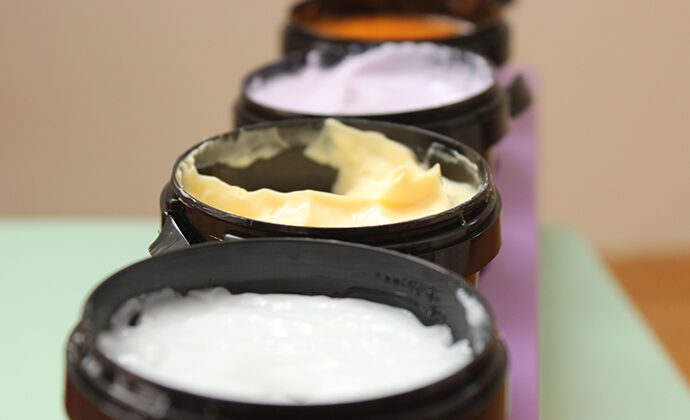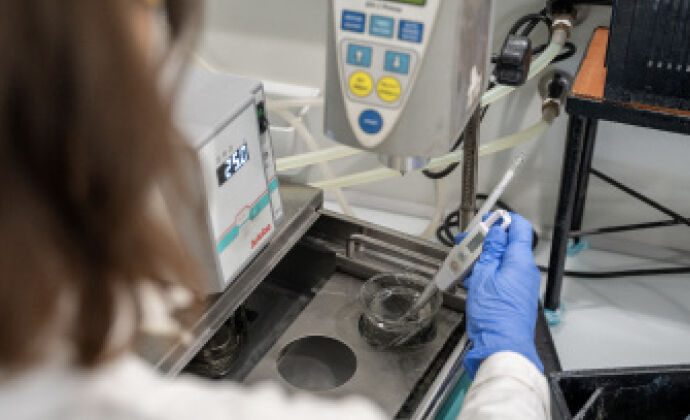Aging Redefined: The Biological Mission of Skincare in The Longevity Era
01/05/25
In recent years, the cosmetics and personal care industry has undergone a profound transformation, driven by emerging insights from longevity science. While “anti-aging” once dominated skincare marketing – mirroring a cultural obsession with erasing the visible signs of aging – a new standard is emerging. Advances in our understanding of the biological processes behind aging have shifted both scientific focus and consumer expectations. According to McKinsey’s Future of Wellness Report 2023, global investment in longevity research is accelerating, prompting brands to move away from the language of “anti-aging” in favor of terms like “regeneration,” “rejuvenation,” and “longevity.”
Longevity science includes areas like stem cell therapy, gene editing and regenerative biology which are now informing the development of innovative skincare products aimed at rejuvenating and repairing human cells. Increasingly, the industry is shifting from a cosmetic model of correction to a biomedical model of maintenance, resilience and repair.

Re-thinking aging: from deficit to adaptation
Traditionally, aging is still portrayed as a problem to be “fought” or “fixed”. However, today’s research frames aging not as a pathological progress, but as a natural biological progression characterised by complex molecular and cellular adaptations.
Skin aging, for example, involves predictable biological mechanisms:
- Cellular senescence (the loss of a cell’s power to divide and grow)
- Extracellular matrix degradation (such as the breakdown of collagen and elastin)
- Oxidative stress accumulation (damage from free radicals)
- Reduced regenerative capacity (a decline in stem cell activity)
Rather than attempting to “reverse” these processes entirely – which is no longer realistic nor desirable. Modern strategies focus on supporting the skin’s repair systems hence acknowledging that healthy aging is achievable by enhancing resilience and promoting regenerative mechanisms. Compounds such as retinoids, peptides and NAD+ are being explored for their ability to modulate key longevity pathways. Active ingredients which are high in antioxidants properties such as our Texiterra™ BF Soya will help protect skin from free radicals and the body from cellular damage.

How are consumers responding to this:
A recent McKinsey report found that over 60% of skincare consumers now say they prioritise “skin health” over “anti-aging” in their products choice, signalling a major mindset shift. This aligns with broader cultural movements toward authenticity, self-acceptance and proactive wellness. Consumers are increasingly educated and seeking transparency in ingredient lists, clinical validation of product claims, and formulations that support skin’s natural functions rather than mask or override them.
The health and wellness market overall, including products that address health, sleep, fitness, nutrition, appearance and mindfulness has grown to around $1.8 trillion globally across all ages in 2024 from $1.5 trillion in 2021. It is expected to grow annually by 5 to 10 percent. As global demographics shift, older adults are expected to have an increasing share of purchasing power in the economy.

(Note: In August 2023, McKinsey’s Future of Wellness Survey, planned to be conducted every 1-2 years, collected data from more than 5,000 consumers aged 18+ years old across China, the UK, and the US to understand wellness trends. Data was segmented by gender and age groups. 1Ages 18+, respondents who answered “strongly agree” or “agree.” Source: McKinsey Health Institute Future of Wellness Survey, 2023)
The future of skincare – longevity as biological mission:
As longevity science continues to evolve, the future of skincare will likely rest on integrative approaches like combining topical interventions with lifestyle factors such as nutrition, sleep and circadian rhythm regulation. Skincare will increasingly be seen as a systemic health practice, not just a cosmetic routine.
Aging is not a flaw to be eradicated but a biological trajectory to be understood and supported. Based on research the next generation of skincare products will help consumers age intelligently: not by chasing youth, but by preserving function, resilience and integrity at the cellular level. In doing so, the personal care and beauty industry is not just selling products, it’s contributing to a new version of aging rooted in science, empowerment and long-term health.
As referenced: Texiterra™ BF Soya
Download full technical data sheet
Request a sample today
References:
-
https://fii-institute.org/wp-content/uploads/2024/10/45362619-4f7c-4cfa-9cb7-6878909d0d5f-1.pdf
-
https://jessicadefino.substack.com/p/theres-no-ethical-way-to-sell-products
-
Lehallier, B., et al. (2019). Undulating changes in human plasma proteome profiles across the lifespan. Nature Medicine, 25(12), 1843–1850.
-
Verdin, E. (2015). NAD+ in aging, metabolism, and neurodegeneration. Science, 350(6265), 1208–1213.



